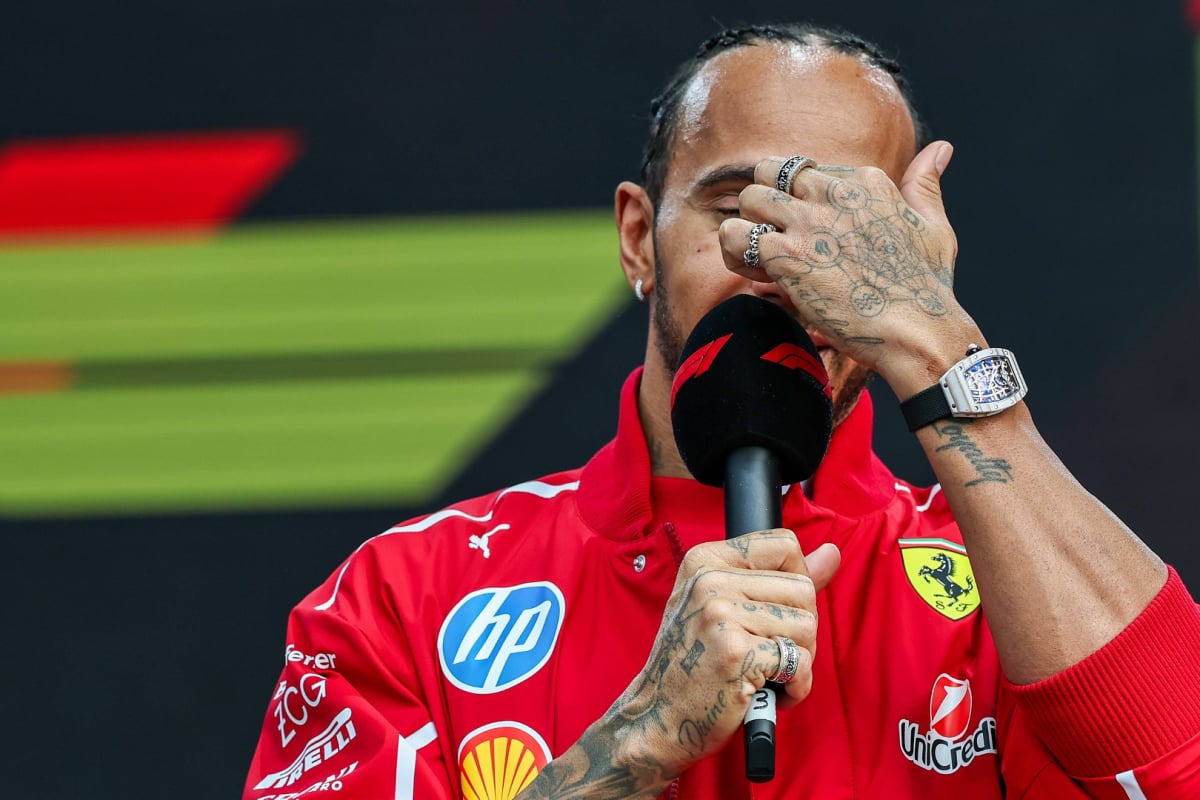Could Lewis Hamilton still add to his legacy by staying in F1, or would retiring n… read more
Lewis Hamilton, a name synonymous with Formula 1 dominance, stands at a fascinating crossroads. Seven world championships, a record 103 Grand Prix victories, and a driving style that blends raw talent with strategic brilliance have cemented his place among the sport’s all-time greats. But the question remains: can he further enhance his already legendary status by continuing his F1 career, or would retiring now preserve his legacy as an untouchable icon? The answer is complex, weaving together factors ranging from his personal ambitions, the competitive landscape, and the very nature of legacy itself.
The argument for continuing hinges primarily on Hamilton’s unquenched thirst for competition. His recent contract extension with Mercedes, while seemingly hinting at a desire to chase an eighth world championship, signals more than just a desire for accolades. It suggests a deep-seated passion for the sport itself, a relentless drive to push his limits and continue innovating within the ever-evolving dynamics of Formula 1. He is undeniably one of the most physically and mentally gifted drivers the sport has ever seen, and his skill hasn’t diminished despite his advancing years. A return to winning ways, perhaps securing that elusive eighth title, would undeniably solidify his position as the most successful driver in F1 history, further dwarfing even the achievements of Michael Schumacher.
However, the path to an eighth championship is fraught with obstacles. The current dominance of Red Bull Racing, spearheaded by Max Verstappen’s seemingly unstoppable form, casts a long shadow over Mercedes’ chances. While Mercedes has shown signs of resurgence, consistently challenging for podium finishes in the later part of the 2023 season, catching Red Bull is no small feat. Hamilton’s pursuit of another title might involve a prolonged period of near-misses and frustrating second-place finishes. This could potentially tarnish his legacy, as the relentless pressure to perform at the highest level could lead to mistakes or a perception of decline, despite maintaining exceptional skill. Moreover, the mental and physical toll of competing at the highest level for an extended period cannot be discounted. The grueling travel schedule, intense pressure, and the physical demands of F1 racing contribute to a significant burden, even for a supremely fit athlete like Hamilton.
The argument for retirement centers on the preservation of his existing legacy. Seven world championships is a monumental achievement, a record that stands as a testament to his talent and dedication. Retiring now would allow him to depart the sport at the peak of his abilities (relatively speaking, as his talent continues to shine even in a less dominant car). It would prevent any potential diminishing of his reputation through a prolonged period of struggles against a seemingly unbeatable opponent. His existing achievements are so substantial that any future accomplishments would serve only as a supplementary layer, whereas retiring would allow his legacy to remain pristine and untarnished by the unpredictability of future seasons.
Beyond the statistical argument, Hamilton’s impact extends beyond race wins and championships. He has become a powerful voice for social justice, using his platform to advocate for equality and inclusivity. This activism has expanded his legacy beyond the confines of motorsport, casting him as a role model and influencer for a generation. Continuing to race might distract from or even dilute his impact in this sphere, as the intense focus required for top-level competition may limit his ability to effectively engage in social activism. Retirement could allow him to dedicate more time and energy to this crucial aspect of his life, further solidifying his legacy as a powerful advocate for change.
Ultimately, the decision of whether to continue or retire rests solely with Lewis Hamilton. Both paths hold potential for enhancing his legacy, but in different ways. Continuing offers the chance to chase an unprecedented eighth title, solidifying his status as the undisputed king of F1. Retiring, however, would allow him to step away at a high point, preserving his image as an untouchable champion while allowing him to focus on other passions and his significant contributions beyond the world of motorsport. The narrative of his career, whatever its ending, will be one of unparalleled success, making him a legend regardless of his future decisions. His legacy is already secure; the question is simply how he chooses to add to it.




